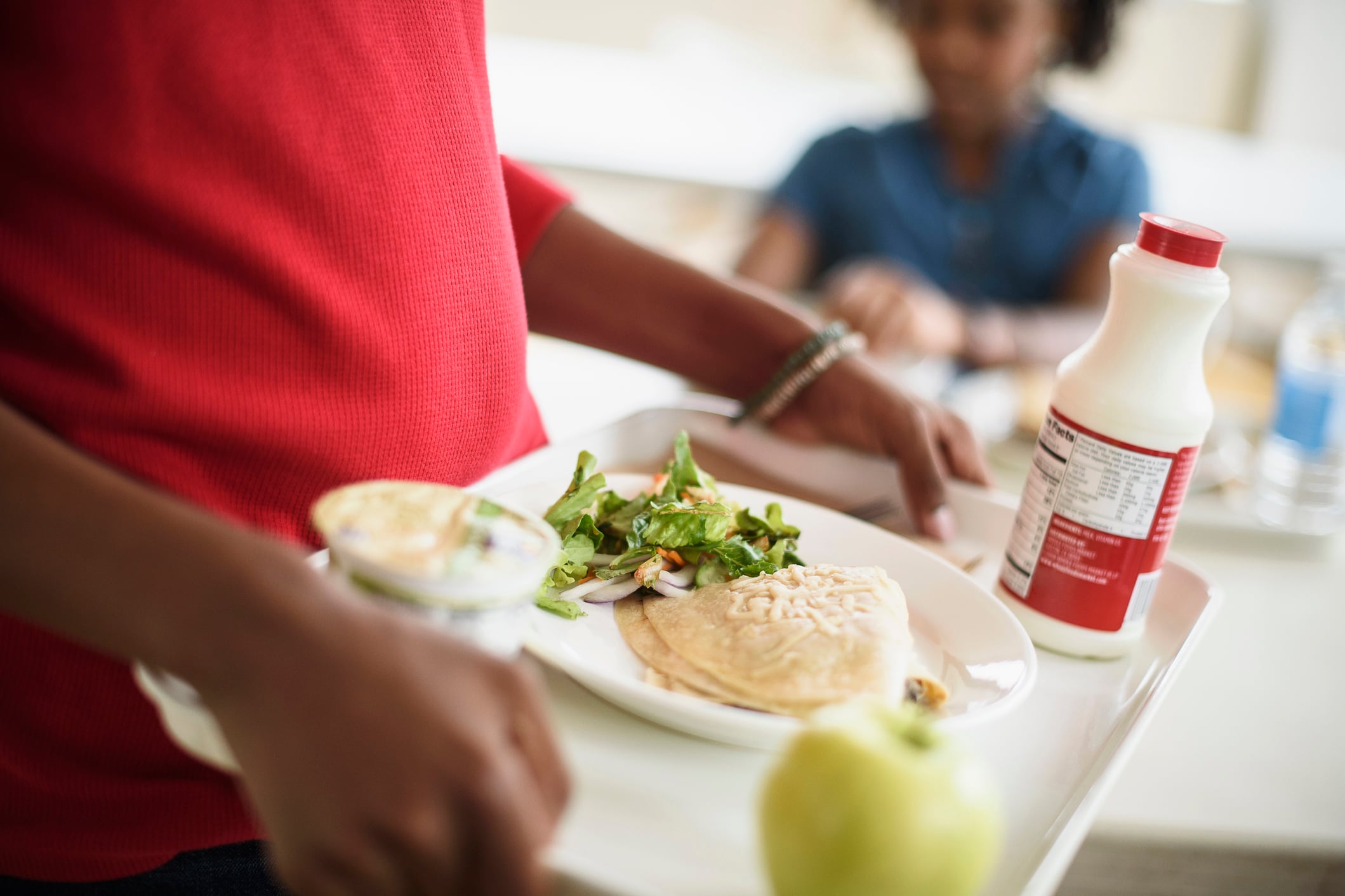In the first year that Colorado is paying districts to give students free meals at school, more kids are eating than expected.
That has left the program $56.1 million short this year. And lawmakers are working on how to close the funding gap.
Colorado voters in 2022 supported creating limits on tax deductions for the state’s highest earners as a way to fund free school meals for all students. Advocates at the time said that there were families in Colorado who, due to the state’s high cost of living, were struggling financially even though they didn’t qualify for subsidized meals under federal poverty guidelines.
In calculating the cost of the program, analysts expected that about 25% more children would eat a school meal, including students who would have qualified for free meals already and those who wouldn’t.
Instead, schools this year have seen a more than 35% increase in breakfast participation, and a more than 31% increase for lunch compared with last year.
The higher-than-expected participation — and program cost — is due largely to students who previously had to pay for a school meal. In most cases, the federal government doesn’t reimburse the districts for any part of those children’s meals, leaving the state to cover those costs alone.
In the Cherry Creek School District, district leaders said they are serving about 32,262 meals a day on average, up from 23,317 a day last year — a 38% increase.
The state legislature’s Joint Budget Committee this week agreed to fill the $56.1 million gap this year. About $31.5 million can be covered with additional revenue that has come in from the new tax provision, but the rest will likely need to come from the state’s general fund.
The committee is also providing $100,000 this year, and $150,000 next year, for the Colorado Department of Education to hire a consultant to help come up with solutions that might keep the program on budget next school year. That effort could involve figuring out how to maximize how much money districts get from the federal government.
But lawmakers said the state will consider all options. That includes cutting the program, changing the eligibility rules for free meals, or finding new ways to pay for it, such as pulling money from the education budget.
Committee lawmakers said that changing the eligibility rules would be a last resort.
“There are a lot of families that technically don’t qualify for free or reduced lunch, but man is it a huge help to them making rent,” said Sen. Jeff Bridges, a Democrat from Greenwood Village. “I would be really uncomfortable with anything that puts a means test back into this program.”
Bridges also said a goal of the program was to remove the stigma of eating free school meals by making them available to everyone, not just to students from low-income families.
Advocacy groups are also working on possible solutions. Anya Rose, director of public policy for Hunger Free Colorado, said the group is considering how to make the program more sustainable, including the possibility of a new ballot measure.
Without any changes to the meal program, state analysts predict Colorado will come up short by $27.8 million next year.
In addition to the universal free school meals, voters approved three grant programs that were supposed to be rolled out in the coming school years. The grants were meant to help districts with things like buying Colorado-grown food for meals, providing stipends for kitchen employees, and paying for training or equipment.
For now, those grant programs will be on hold.
Lawmakers on the Joint Budget Committee debated this week over whether they had a responsibility to keep the voter-approved program going, regardless of the additional cost to the state.
Sen. Barbara Kirkmeyer, a Brighton Republican, said that cost calculations have changed and the state has to deal with that.
“All of these warnings were given to us before, and we ignored them,” she said.
Before the plan was put to voters, lawmakers defeated a plan to offer free school meals to all, in part because of concerns about the cost.
Yesenia Robles is a reporter for Chalkbeat Colorado covering K-12 school districts and multilingual education. Contact Yesenia at yrobles@chalkbeat.org.







